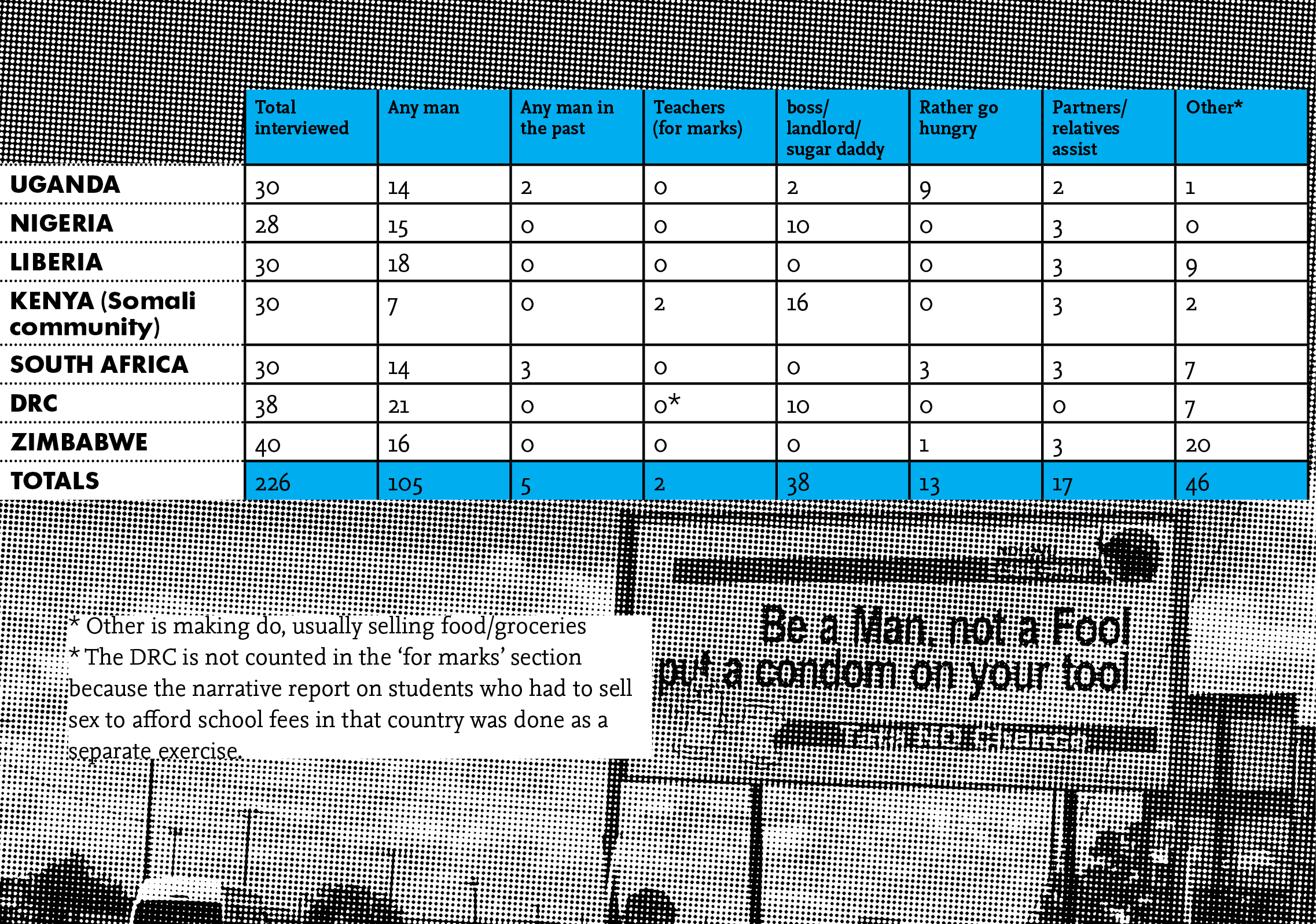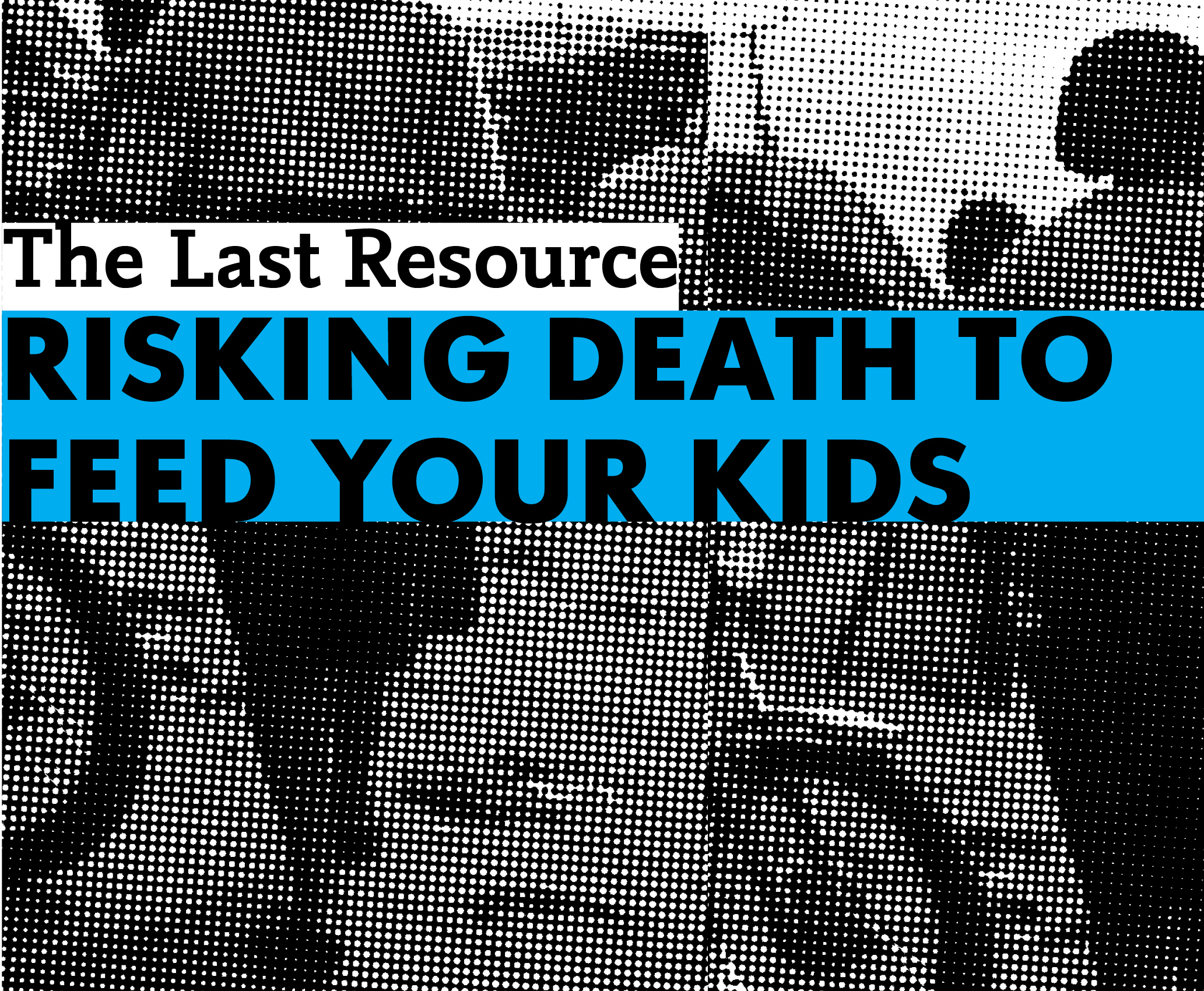Many African women who live at or below the poverty line are forced to sell their bodies in order to make ends meet. The women do not notice anything of the many poverty relief programs that exist on paper in their countries.
This is the conclusion of a study by the African Investigative Publishing Collective (AIPC), conducted in close collaboration with ZAM magazine.
The authors of the report write:
What stays with us after six months is how much they hate it. “They laugh at you and beat you.” “You feel low, like your ego has gone away.” “You sacrifice body and soul.” “I hate myself.” And: “I have seen people die of Aids. It’s horrible.”
Over the years, as journalists in our respective countries, we had already noted how ordinary women – cleaners, market sellers, waitresses, assistant teachers, factory workers, students – were offering sex for money in many of the places where we worked.
We knew that poor women in our countries sold sex simply to live. But many of them there were outside the known red light districts, in places where we had never expected it: in ordinary flats and villages, all over town and the rural areas. Most of them didn’t even look like sex workers at all, even if some would dress up like that in the evening. We knew them as housewives and cleaners and fruit sellers. They wore doeks on their heads. They were like us, only poorer. And sadder.
For this research, we spoke to a total of 226 women of all ages from around twelve to around sixty, randomly selected in townships, squatter camps and villages, in dilapidated rentals, on markets, at bus stations and other community hubs, in seven African countries. Close to two third (!!) of these women, 148 to be precise, resorted to the 'last resource' and mentioned to be scared of HIV/Aids and death.
They said that most customers didn’t want to use condoms and that they did not have access to proper health care. It was because of this pervasive fear, that was all over the answers we received, that we decided on the subtitle ‘Risking death to feed your kids.’
The interviewing exercise was carried out by a predominantly female team of the African Investigative Publishing Collective (AIPC) in Nigeria, South Africa, Liberia, Uganda, Zimbabwe, the Democratic Republic of Congo (DRC) and Kenya. Explicitly not targeting women in red light districts or brothels, women were instead approached in their communities, at home, at market stalls or at businesses like hair salons and restaurants in the area. The women, who identified themselves as hairdressers, vegetable sellers, cleaners, dress makers, waitresses, housewives and most of all: mothers, were asked to respond to a list of questions relating to poverty and its challenges.

Recommendations
In a conclusion, the AIPC says that bad governance seems to be at the root of much of the misery experienced by the women and recommends that donor governments and multilateral organisations focus more on strengthening public administration and rule of law in countries such as the ones in the report, rather than simply allocating budgets to incapable governments.
In another conclusion, the AIPC calls for more research to see if its observation that bad governance seems to be at the root of much of the misery experienced by the interviewed women can be further substantiated. It recommends that donor governments and multilateral organisations, if that is the case, should focus more on strengthening public administration and rule of law in countries such as the ones in the report.
Download the full report here.


